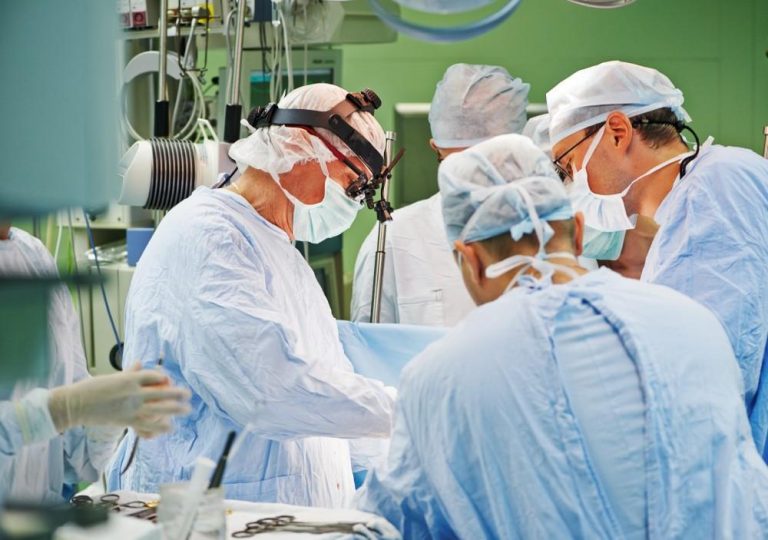
If you can’t entertain the idea of undergoing reconstructive surgery to provide relief for your chronic condition, you’ll be glad to know that the benefits associated with stem cell therapy have increased considerably in recent decades.
Today, researchers are discovering ways to apply this treatment approach to common chronic conditions, for instance, neurodegenerative diseases, diabetes, and heart disease. At Advanced Spine and Pain (ASAP), they adopt the most innovative methods to ensure their patients enjoy life without limitations or pain.
Established in 2010 by Dr. Thomas Riley, ASAP has maintained its repute as a leading provider of spine care and pain management in Stafford, Fairfax, and Arlington counties as well as the greater Baltimore. If you’re new to this treatment approach, you might be skeptical. Fortunately, you can expect these benefits.
How Stem Cell Therapy Works
Stem cell therapy or regenerative medicine encourages the reparative response of dysfunctional, injured, or diseased tissue through stem cells or their derivatives. Researchers grow these cells in a laboratory where they undergo manipulation to specialize in particular kinds of cells, for instance, nerve, blood, or muscle cells.
Subsequently, the implant of the cells can take place in a person, for instance, if he or she has heart disease. In this case, a physician can inject the cells into the heart muscle. This therapy is a relatively fast and simple outpatient procedure.
Benefits of Stem Cell Therapy
1. Treatment of Cardiovascular Diseases
Cardiovascular illnesses can deprive the heart tissue of oxygen, causing the formation of scar tissue, which alters blood pressure or blood flow. According to research, stem cells from adult bone marrow can differentiate into those required to repair the blood vessels and heart due to the secretion of numerous growth factors.
2. Helps heal incisions and wounds
Studies have discovered that stem cell therapy can help enhance the growth of new healthy skin tissue, enhance collagen production, stimulate hair development after incisions or loss, and help substitute scar tissue with newly developed healthy tissue.
3. Treatment of Neurodegenerative Diseases
Current progress in the treatment of illnesses such as Parkinson’s and Huntington’s reveal that transplanted adult cells can work in the formation of new brain neurons, cells, and synapses after brain injuries or cognitive degeneration.
4. Autoimmune Diseases
Stem cell therapy for autoimmune illnesses is a new option for persons living with severe and debilitating conditions such as rheumatoid arthritis and lupus. Autoimmune diseases arise when your immune system attacks its own tissues, cells and organs. At ASAP, stem cell therapy is a minimally invasive procedure that seeks to maintain downtime to a minimum.
5. Orthopedic Conditions
This therapy can help those experiencing the discomfort associated with orthopedic conditions, spine disease and sports-related injuries. At ASAP, they address the underlying sources of pain while offering an opportunity for healing effects and lasting relief.
The Functions of Stem Cells
Stem cells are your body’s raw materials i.e. they generate other cells with specialized roles. Under the appropriate conditions in a laboratory or the body, these cells split to produce more cells-daughter cells.
Subsequently, the daughter cells become new stem cells through self-renewal or specialized cells through differentiation. In turn, the specialized cells have a more specific role; for instance, heart muscle, brain cells, or blood cells. Researchers have unearthed numerous sources of stem cells, including:
Embryonic
The stem cells originate from embryos that are 3-5 days old. During this stage, the term used to describe an embryo is a blastocyst, which comprises 150 cells. These cells are pluripotent, implying they can split into additional stem cells or become any kind of cell in your body. This versatility enables embryonic cells to serve the purposes of repairing or regenerating diseased organs and tissue.
Adult Cells
These stem cells are in small quantities in the majority of adult tissues, for instance, fat or bone marrow. In comparison to embryonic cells, these ones have a more restricted capacity to give rise to various body cells.
Are you looking for a reliable practice to address your spine-related pain with stem cell therapy? Advanced Spine and Pain is fully equipped with knowledgeable experts, so don’t hesitate to contact them today.
]]>





